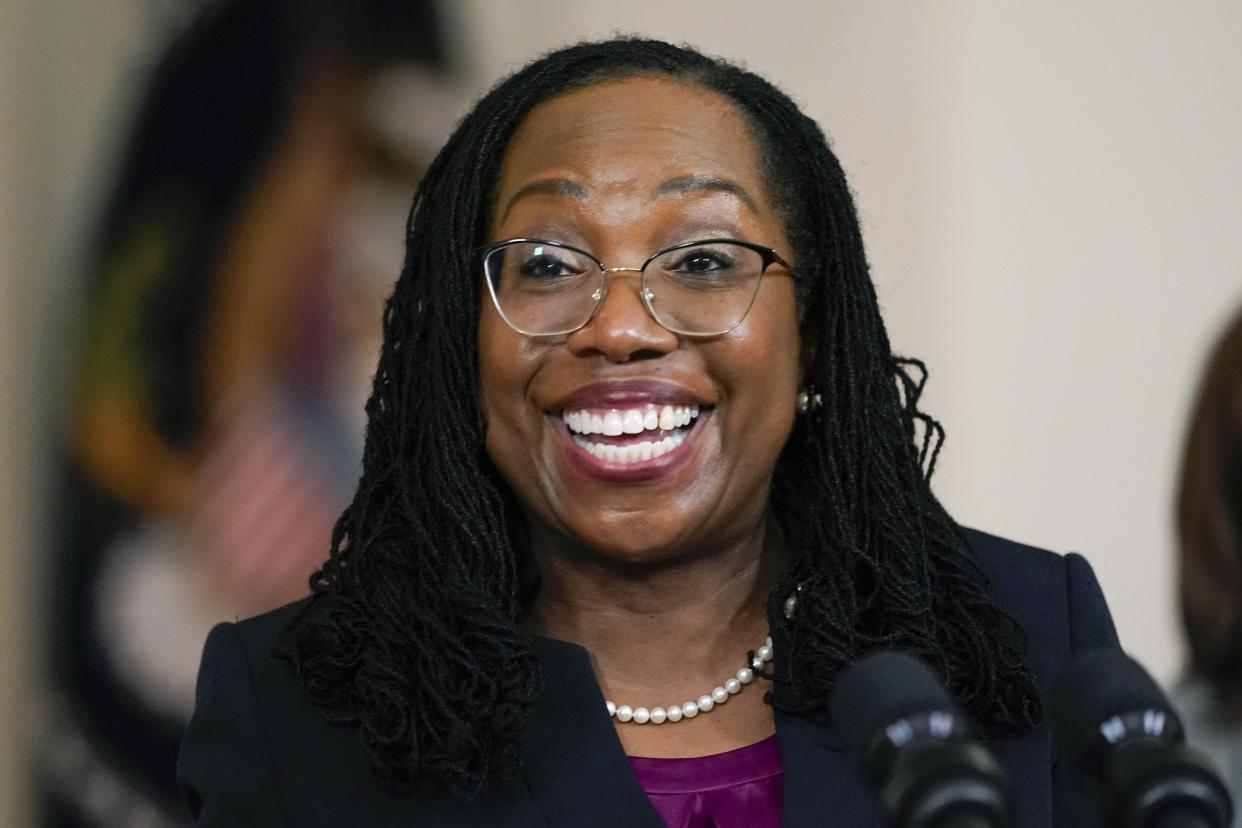'Relatability' undervalued in a Supreme Court pick

Does it really matter that our institutions "look like America"? It depends on who you ask. For most White people -- especially White men, who get most of the gravy, and presumably don't often feel out of place -- it probably doesn't matter much.
But, for people of color -- many of whom feel disrespected or "othered" or undervalued -- it can be awfully inspiring to see a familiar face in a high place.
President Joe Biden gets it. Maybe it's because he is Irish Catholic. Maybe it's his hardscrabble childhood in working-class Scranton, Pennsylvania. Or maybe it's because he grew up with a speech impediment. For whatever reason, Biden obviously knows what it's like to be on the outside looking in.
Now that sensation continues with his presidency.
In a recent PBS NewsHour/NPR/Marist poll -- taken before the State of the Union address -- 56% of Americans said that Biden has been a failure in office.
Yet, Biden knocked it out of the park when he picked D.C. Circuit Court of Appeals Judge Ketanji Brown Jackson to replace retiring Supreme Court Justice Stephen Breyer.
"For too long, our government, our courts, haven't looked like America," Biden told the nation in introducing his nominee. "And I believe it's time that we have a court that reflects the full talents and greatness of our nation with a nominee of extraordinary qualifications and that we inspire all young people to believe that they can one day serve their country at the highest level."
Biden might also have mentioned one more thing: relatability.
The discussion about whether a nominee to the Supreme Court is "qualified" usually centers on academic credentials, work experience, judicial temperament or reputation in legal circles.
With her confirmation hearing scheduled to begin on March 21, Jackson checks all those boxes. Her resume includes degrees from Harvard College and Harvard Law School, where she was an editor of the Harvard Law Review. She also has the experience of having clerked for two federal judges and Justice Breyer, public service experience as a federal public defender and a member of the U.S. Sentencing Commission, as well as private sector experience as an associate in a prestigious law firm. Clearly, Jackson is "next level" qualified.
But it's a nice bonus if a nominee is someone to whom everyday Americans can relate. Supreme Court justices -- who breathe rarified air, in part because they have lifetime appointments -- should not be so far removed from our daily lives, especially since they decide cases that impact our daily lives.
When I heard Biden describe Jackson's journey as a Black woman navigating a White world, I detected a familiar ring. Looking over her biography, and listening to her remarks at the White House, I picked up bits of my own story.
How do I relate to Judge "KBJ"? Let me count the ways.
She's 51, and I'm 54. So we both grew up in the 1970s.
Her parents attended segregated schools. So did mine -- as Mexican Americans raised in South Texas and Central California during the 1940s.
When Jackson was in preschool, she watched her father -- a public high school history teacher -- go to law school. While I was in grade school, I tagged along as my dad went to night school at a nearby state university in pursuit of a bachelor's degree -- while also working day shifts as a police officer. Jackson's mother worked hard to help her father get through school, and so did mine.
Like me, Jackson comes from a law enforcement family. Her brother, Ketajh, was a police officer and detective in Baltimore. She has two uncles who are cops, including one who served as police chief in her hometown of Miami, Florida.
And, like me, she also has family members who made bad choices and wound up in prison. In her remarks, she said that she has an uncle who "got caught up in the drug trade and received a life sentence." I tell people that, when I applied to college, I had more cousins in San Quentin than in the Ivy League.
We both have two Harvard degrees, despite the fact that we were both told by high school guidance counselors -- and in my case, also by my high school principal -- not to set our goals so high.
Trust me, Jackson's path wasn't easy. And so -- for traveling it -- she deserves the utmost respect. If Republicans on the Senate Judiciary Committee know what's good for them, they'll treat her respectfully.
Reuben Navarrette' is a syndicated columnist in The Washington Post Writers Group. His email address is crimscribe@icloud.com.
This article originally appeared on Palm Beach Post: President Biden correct in making the High Court look like America

